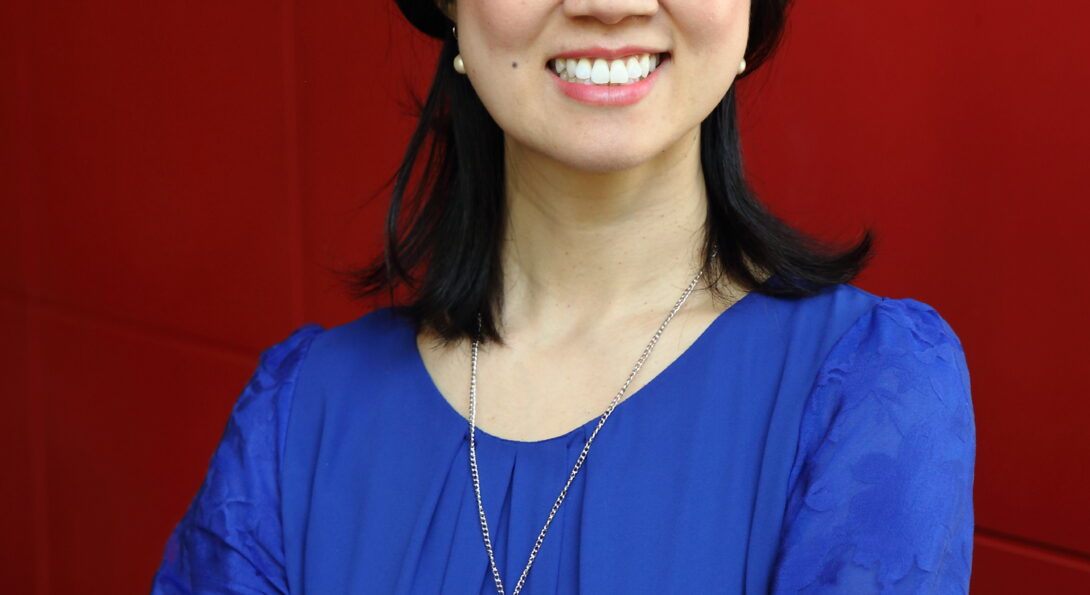Manako Yabe overcomes barriers to earn Ph.D. in disability studies

Manako Yabe poetically compares her journey to that of a dandelion seed trying to grow on a stone street.
She’s overcome significant challenges to receive her Ph.D. in disabilities studies at UIC. She was born deaf in Japan, and her dream of attending an American university seemed nearly unreachable.
She will share her story as the student speaker at the College of Applied Health Sciences commencement on May 9. Her speech, presented in American Sign Language, will be translated into spoken English at the ceremony.
“I have faced uncountable barriers, including communication, language, gender, socio-economic and, what’s more, stigma because of my deafness,” she shares in the speech. “Over the years … my dream was nearly crushed. My dandelion seed was wandering and trying to find the right place to settle down. Five years ago, I finally found UIC, where my dandelion seed began to settle and grow.”
When Yabe joined UIC in 2014, she saw a need on campus for emergency texting services and later proposed to campus police that UIC launch a campus safety app. In 2016, the UIC Rave Guardian app launched, and a new app, UIC Safe, is available now.
“Text messaging is not just for people who are deaf and hard of hearing,” Yabe said. “This service also appeals to those who are English as Second Language speakers and international students. There are also emergency situations where a phone call is not safe, such as domestic violence situations or a campus shooter.”
Her experience as a translingual tutor at the UIC Writing Center in the fall of 2016 helped change her viewpoint on the language and communication barriers she’s faced. She tutored students online and in person.
“I was doubtful about myself, wondering how I could help hearing American and international student writers,” she said. “That experience helped to open my eyes and give another lens for what it looked like when working as a deaf tutor with a hearing writer versus a hearing tutor working with a deaf writer. These experiences led to my new research interests, and I began to share my story at conferences internationally and nationally.”
She found inspiration for her dissertation from her experience receiving health care. Many hospitals have reduced the number of in-person interpreters and popularized Video Remote Interpreting (VRI).
“While VRI provides prompt services for emergency care and is cheaper than in-person interpreting services, there have been several challenges with its use, such as poor connection, limited flexibility in maneuverability, or a small screen size, which makes it difficult to see the interpreters or patients on the screen,” she said.
In her dissertation, “Healthcare Providers’ and Deaf Patients’ Perspectives on Video Remote Interpreting: A Mixed Methods Study,” she proposes a balance between VRI and in-person interpreting and training for hospital administrations, health care providers, and deaf patients.
“I hope that the information will help to improve the quality of the interpreting services at hospitals,” she said.
At UIC, she also developed training programs for the College of Medicine on how health care providers can better serve patents with disabilities, and she helped the college create a new disabilities studies curriculum.
Yabe recently passed her thesis defense and is ready to move to a new chapter. She hopes to join a university as a faculty member, researching methods to improve accessibility in online teaching and writing instruction.
“My dandelion seed was blown on the wind here, and it has already blossomed in the UIC earth, and now, my tiny dandelion seed is ready to fly to new ground,” she said.